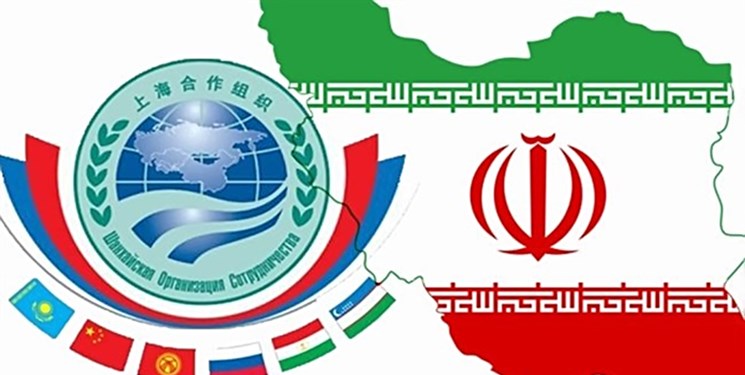The role of the Shanghai Bank of Independent Members Network in the development of free zones

Fars news; Abdolreza Yaghoubi Economic Expert – One of the most basic and important requirements for economic and commercial prosperity in free economic zones is undoubtedly the existence or establishment of banks that, like all the laws of these zones, are outside the cumbersome framework, frustrating bureaucracies and tax fears and restrictions. To be governed.
Banks that are capable of heavy currency exchanges outside the borders of the ruling country have high system security, strong international carbonking technology and communications, and of course process agility. We see similar situations, of course, with slight differences, and more or less, in “offshore banks” or “offshore banks”.
“Offshore banks are banks that are less regulated in terms of regulation, so in many cases they can respond more quickly to opportunities in the economy.
Technically, an offshore bank is a banking unit in an international financial center owned by a non-resident bank that conducts banking operations by accepting deposits from foreign banks or other offshore units. “Offshore bank accounts are also tax-deductible bank accounts.”
These banks are usually branches of larger banks, sometimes multinational and non-resident in offshore or free trade zones, but the laws of some of these zones, including the free zones of Iran, provide for the establishment of new, single-branch banks. And is done independently of other domestic or international banks as an offshore bank.
Predicting and planning the emergence and presence of these banks in the free and special economic zones of Iran since the early 70s, ie more than two decades ago, and their laws and regulations have been regularly researched and reviewed, but for many reasons such as inconsistency In the economic teams of the previous countries, the unpreparedness of the central bank, the instability of the exchange rate in recent years in Iran and, of course, the problems of sanctions on the banking system and Iran’s dollar trade exchanges abroad, this has not led to results.
Certainly, the presence of Iran in various international financial and trade agreements and memoranda, such as FATF, and the presence or absence of the country in the OECD blacklist is very important and effective in the success of the establishment and continuation of these banks in the free zones, but the problem This is not the main reason for the 20-year lack of conclusions regarding the establishment of these bank branches in the free zones of Iran.
One of the major obstacles to the establishment of offshore banks in Iran’s special economic zones was the adequacy of the heavy capital of the Central Bank of the Islamic Republic of Iran for these branches, ie the initial amount of 100 million euros, which in 2009 was reduced to 50 million euros.
Pursuant to Circular No. 6/6 dated 6/21/1695, the subject of notification of paragraph one of the approvals of the one thousand two hundred and twenty-third session dated 16.6.1695 of the Monetary and Credit Council regarding the minimum capital required for the establishment of foreign banks in free trade zones – Industrial, hereby reminds, in the one thousand two hundred and eighty-seventh session of the Monetary and Credit Council dated 11/1/2009, the issue of reducing the amount of capital required for the establishment of foreign banks was raised and determined; the minimum capital required for the establishment of “The foreign bank in the free zones will be reduced from € 3 million to € 5 million.”
This is while in most offshore countries of the world such as Cyprus, Dominica, Hong Kong, UAE, etc., the capital adequacy required for the establishment of offshore bank branches, a figure between 5 to 15 million dollars has been seen, which is usually due to exchange rate stability and The economic stability of governments in these countries, security and the power of investment privacy, and finally strong and secure Internet connections and carbon banking in them, the attractiveness of investing in establishing such banks in those areas, is not comparable with the free zones of Iran.
Of course, it is noteworthy that Iran’s official membership in the Shanghai Organization, despite the fact that the foundation of this organization is security cooperation, but with the addition of financial, commercial and banking attachments, including the joining of Iran, Russia and China to an independent banking network. Through Sepam (something like Swift) it can solve an important part of the international problems and sanctions of Iran’s banking on the establishment of these offshore banks in free economic and special industrial zones.
Therefore, it should be noted that one of the priorities of the economic team of Ayatollah Ra’isi’s government in order to rebuild and repair deep cavities and treat the deadly wounds of Iran’s swollen and tired economy, should be the immediate amendment of the laws and regulations of Iran’s free zones, because these zones are the strongest. And the most agile arms of the country’s economic prosperity, especially in the field of production, export and supply of basic goods, especially in the conditions of sanctions and economic oppression that the United States and some of its allies have set against Iran.
At present, the most important reforms that should be given priority in reforming the regulations of free economic zones are the reform of regulations for establishing offshore bank branches and facilitating the establishment of these banks in free zones as soon as possible, because today the establishment and expansion of To facilitate Iran’s monetary and banking relations with foreign countries, is strongly in favor of the current economic conditions of the country.
Also, in the current situation of sanctions against Iran, facilitating the issuance of licenses to exchange offices with a strict supervisory attachment after the establishment by the Central Bank should be considered along with the establishment of these banks, because exchange networks also play an important role in facilitating financial transfers. they do.
End of message /
.

